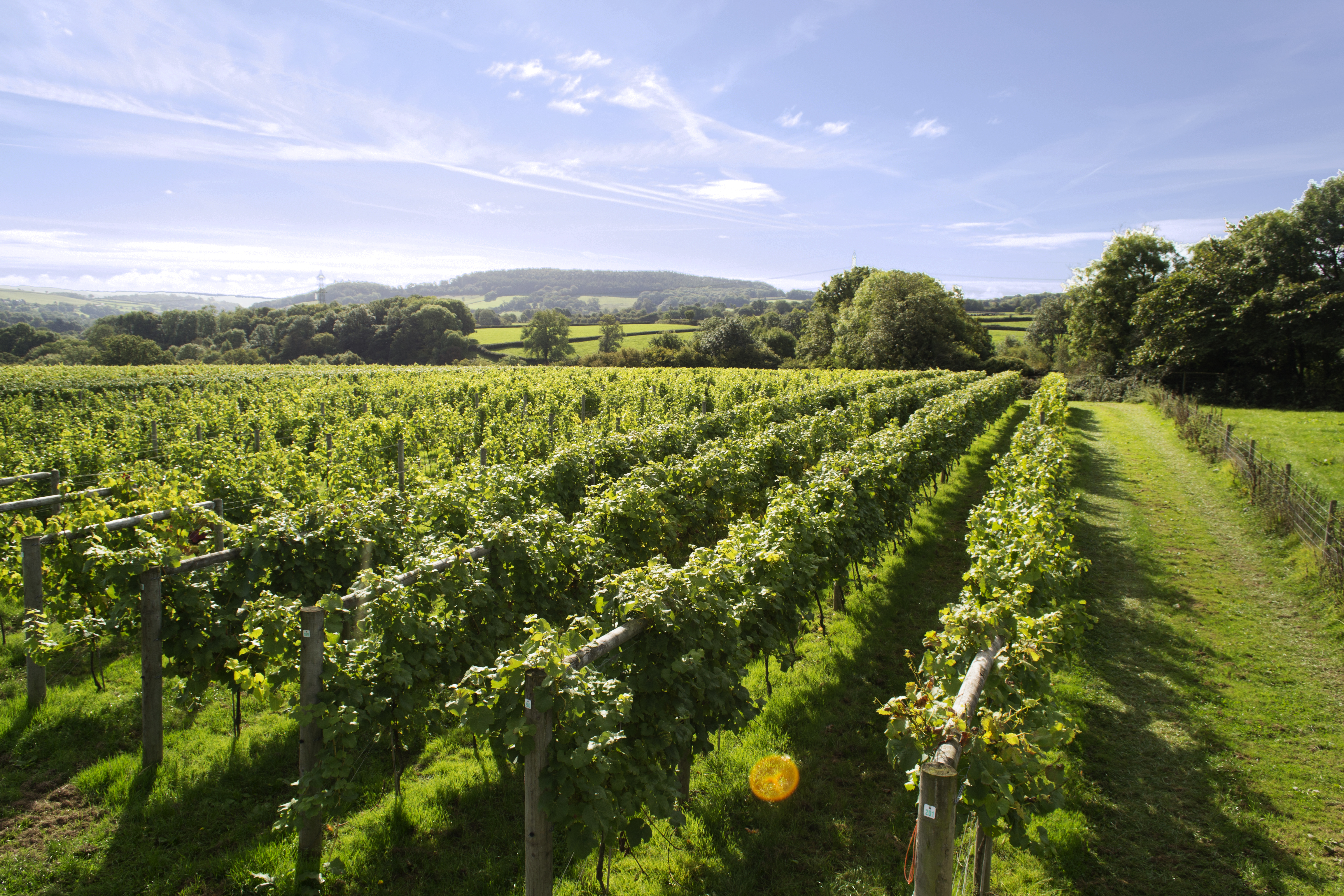The last miracle of St Boswell? How a Scottish potato field became the world's least-likely producer of sparkling wine
The country has produced its first ‘champagne’ after its producers, Lorna and Trevor Jackson, planted 1,000 vines nine years ago on their farm in St Boswells.


Exquisite houses, the beauty of Nature, and how to get the most from your life, straight to your inbox.
You are now subscribed
Your newsletter sign-up was successful
Saint Boswell, once the Abbot of Melrose in Scotland, doubtless performed many miracles in his time before succumbing to a plague in AD661. But it seems as if his spirit might still be at work today, because a farm in the town that bears his name — St Boswells, in the Borders — has managed, miraculously, to produce Scotland's first ever 'Champagne'.
No miracle ever happened without plenty of hard work and a bit of faith, of course — and that's exactly what Lorna and Trevor Jackson did nine years ago, when they took a chance on planting 1,000 vines in a 1.5 acre potato field. Now, they're reaping their rewards, and bottled their first batch of Borders Bubbly last year. They took their first sip during a toast to their granddaughter, on her first birthday.
The amount of interest the project has garnered has encouraged the couple to look into production on a larger scale. It is currently Scotland's only outdoor vineyard producing grapes for wine.
Speaking to SWNS, Lorna said: ‘Back in 2016, we had a spare potato field and we were trying to figure out what to put on it. We decided that we might try to see if vines would grow... It’s in the south of Scotland, so we have a good microclimate and we were quite hopeful.’
With the help of their friends and family, the couple set about digging the necessary one thousand holes, and then attended viticulture courses at Plumpton College, near Brighton.
'My husband and I were really surprised. We jumped up and down. It didn’t taste of vinegar, it was really bubbly, and it had a light and fruity taste'
Lorna Jackson on Borders Bubbly
During their harvest, Lorna and Trevor picked around 32lbs of grapes, enough to create eight bottles of wine. ‘We were just trying to make a product that didn’t taste like vinegar, so we’re very pleased that we’ve got a nice product that we think is very drinkable,’ Lorna added. ‘My husband and I were really surprised. We jumped up and down. It didn’t taste of vinegar, it was really bubbly, and it had a light and fruity taste that will only get better after maturing.’
Their plans to expand will take time, however. ‘We need to build something more industrial to make the wine, rather than my feet trampling on them in a garden trough,’ Lorna said. ‘It was initially just a proof of concept to see if we could make a champagne-style wine in the Scottish borders — and we did.’
Exquisite houses, the beauty of Nature, and how to get the most from your life, straight to your inbox.
Lotte is Country Life's Digital Writer. Before joining in 2025, she was checking commas and writing news headlines for The Times and The Sunday Times as a sub-editor. She has written for The Times, New Statesman, The Fence and Dispatch magazine. She pens Country Life Online's arts and culture interview series, Consuming Passions.
